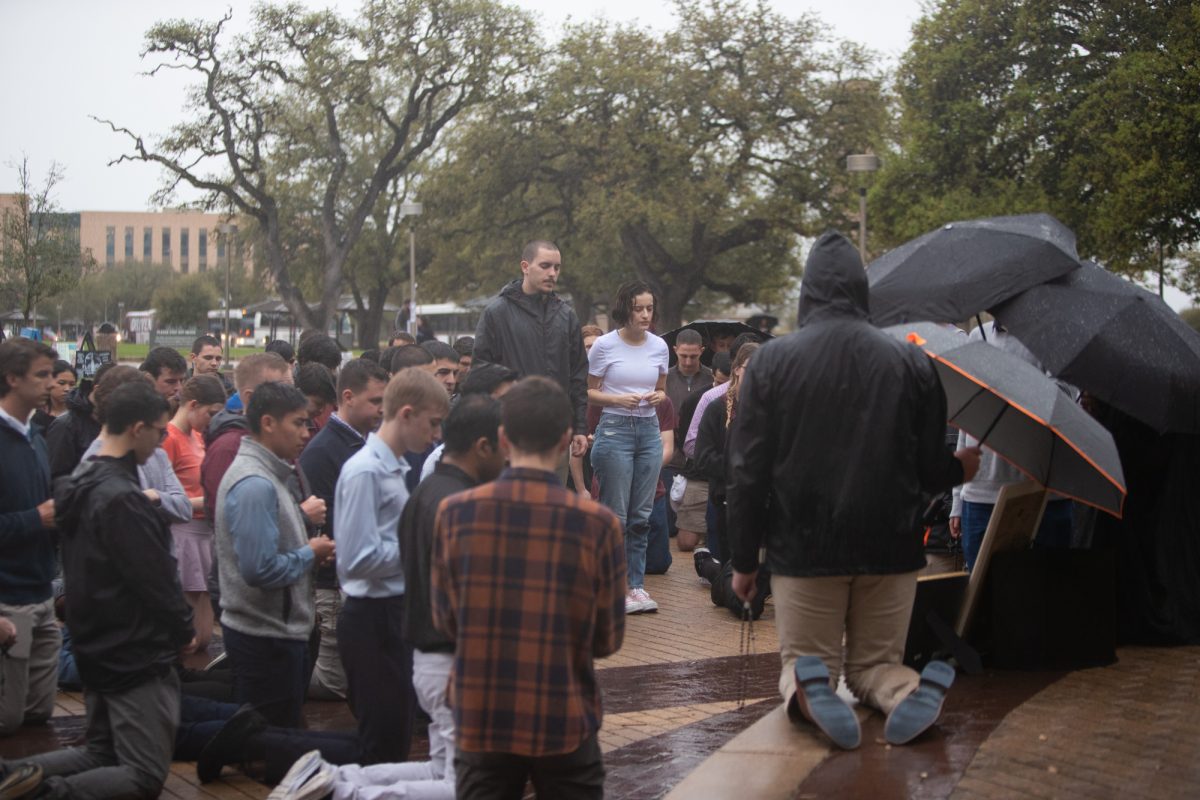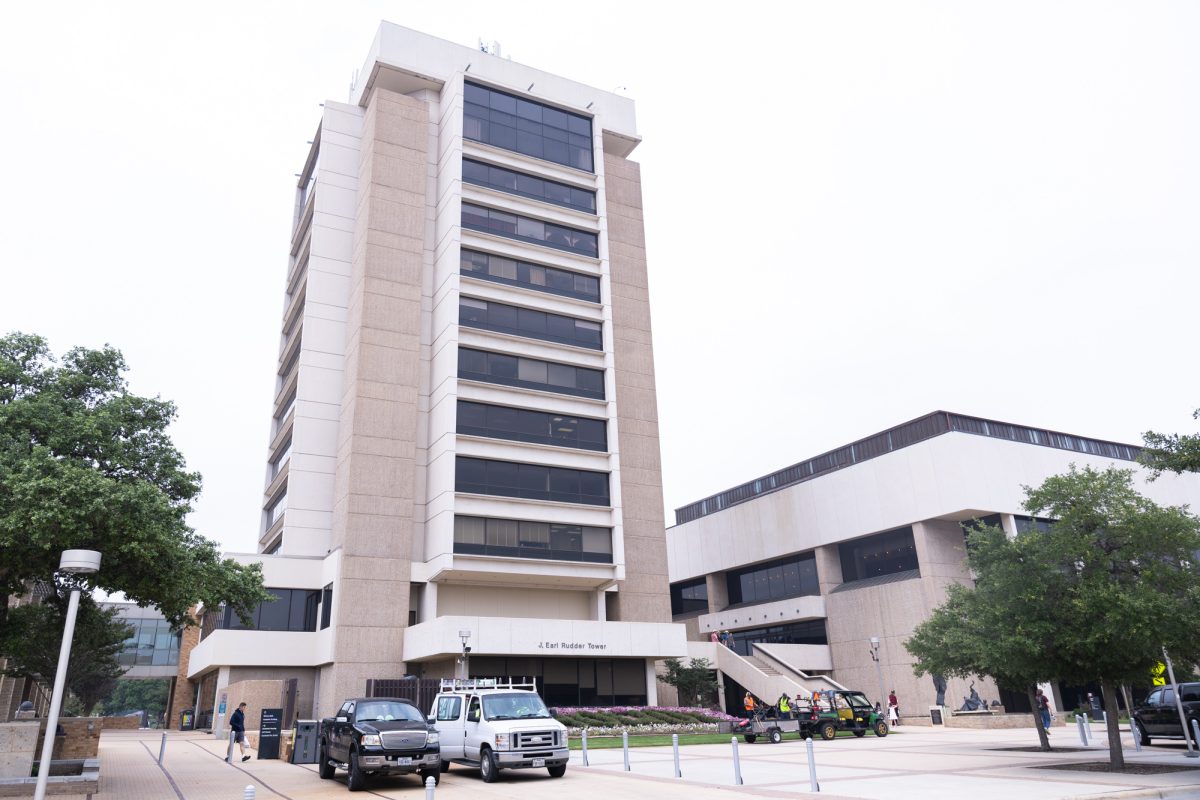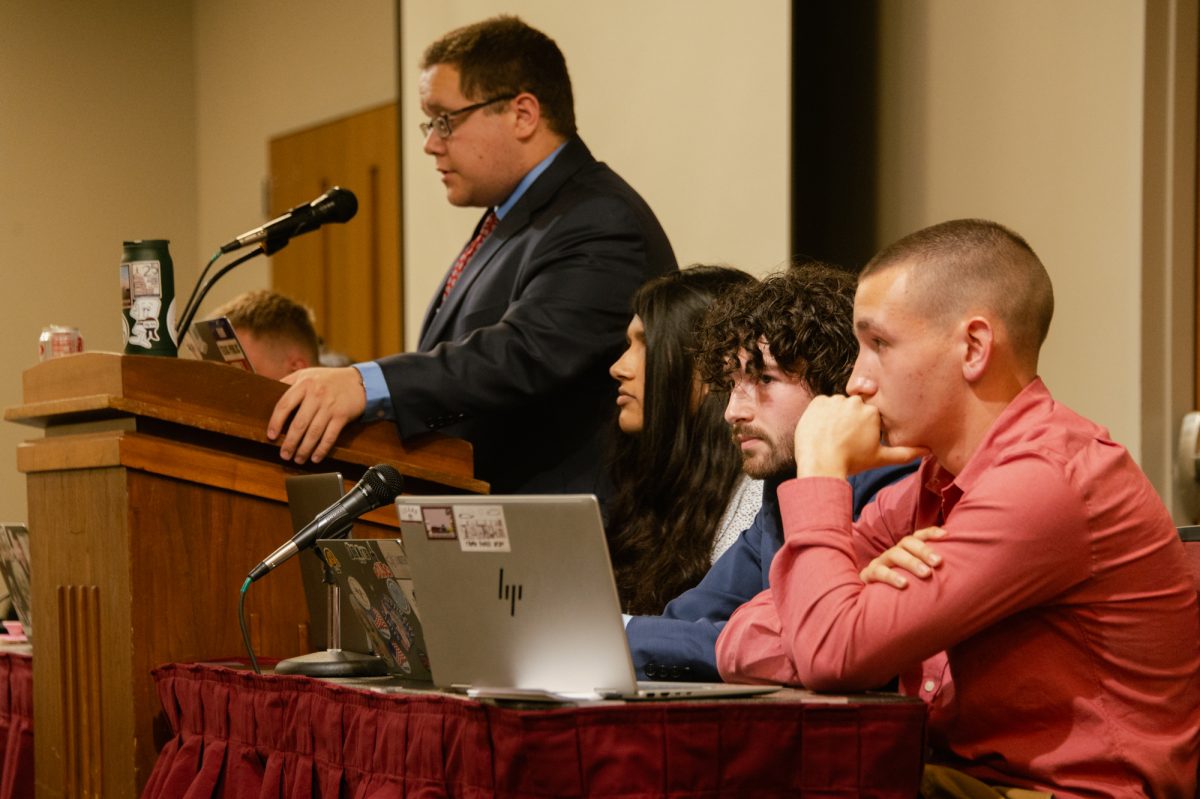For a few hours, a new law known as Senate Bill 4, or SB4, went into effect on March 20, making crossing the border illegally a state crime.
The new law permitted Texas law enforcement to arrest those crossing illegally. No arrests were reported on Tuesday before it re-entered a state of legal limbo. Deportation and border enforcement are typically considered to be the federal government’s responsibility, not the state’s.
“We are against this draconian law, which is completely contrary to human rights,” Mexican President Andrés Manuel López Obrador said the day after the law came into effect. “… If [Texas law enforcement does] intend to do deportations, which is not up to them, we won’t accept deportations from the Texas government, and we will not idly stand by.”
Various groups have expressed concerns over the law, such as Kate Melloy Goettel, senior legal director at the nonprofit organization American Immigration Council.
“SB4 is cruel, inhumane, and clearly unconstitutional. And it is being mimicked in state legislatures across the country that put immigrant communities and families at risk,” Melloy Goettel in an AIC press release. “All these bills could result in significant civil rights abuses, leading to widespread arrests and deportations by state actors without key federal protections. Our hope is that SB4 is ultimately blocked in court; otherwise, this sets a disastrous precedent.”
The law entered a state of limbo after the Supreme Court rejected an emergency application by the Biden administration to stop the law from going into effect. Not ruling on the case’s merits, the Supreme Court, with three Justices dissenting, returned the case to the 5th U.S. Circuit Court of Appeals. The Appeals Court then ruled 2-1 to restore an injunction on the law placed by U.S. District Judge David Ezra on Feb. 29.
These developments happen against a backdrop of an ongoing series of legal battles between Texas and federal agencies about how border law is enforced. On Jan. 22, the Supreme Court ruled 5-4 that Border Patrol agents could continue to cut razor wire along a portion of the U.S.-Mexico border placed by Texas.
This decision came weeks after a woman and two children drowned in the Rio Grande River trying to enter the U.S. from Mexico on Jan. 12. The Department of Homeland Security claims this was after Texas military officers prevented federal border officials from aiding them. The Texas Military Department, or TMD, disputes this, claiming in a statement “at no time did TMD security personnel along the river observe any distressed migrants, nor did TMD turn back any illegal immigrants from the US during this period.”
To contextualize the border situation in Texas, Texas A&M law professor Huyen Pham, Ph.D, and A&M sociology professor Nancy Plankey-Videla, Ph.D, discussed the wider context prior to recent SB4 developments.
Pham said the Sept. 11, 2001 attacks on the World Trade Center were an important turning point in border policies.
“Before 9/11, there were occasional skirmishes between the federal government and states as to who exercises power,” Pham said. “After the 9/11 attacks, the federal government, Attorney General John Ashcroft issued and asked state and local government, state and local police to join in the enforcement of immigration law, and that really expanded the scope of immigration enforcement.”
Since this shift, there have been ongoing legal struggles. Pham said in a series of Supreme Court cases, there have been challenges to mostly state laws enacted to try to take over some aspect of immigration enforcement.
“I think what Gov. Abbott is doing with Operation Lone Star is to really push the envelope and try to challenge what has been established principles of putting the immigration power solely in the federal realm,” Pham said.
Plankey-Videla said discussing the current border situation requires further historical context. The border’s security and crossing points have become increasingly militarized since the 1990s, she said, including infrared sensors, motion sensors, heat sensors and drones.
“All of this helps stop people at the border, and so then they go through areas where there isn’t as much technology or U.S. Border Patrol, and it’s more dangerous, so what’s happened is that there has been an increase in the deaths of migrants crossing the border because they shift where they cross,” Plankey-Videla said.
However, not everyone entering the US has full information about the asylum-seeking process, such as whether they come to the U.S. and ask for asylum, they will get asylum. Plankey-Videla said many migrants have incorrect information, meaning some cross the border just to give themselves over to border control.
“I think that there are multiple reasons for crossing the border, and many people are so desperate that they will continue to cross even though it has become riskier,” Plankey-Videla said.
Pham said Abbott’s use of the word “invasion” to characterize the inflow of immigrants is politically incendiary and invokes the constitution by saying that the federal government has a responsibility to protect the states against an invasion. Pham said Abbott’s efforts to undermine federal authority by saying that using state troopers to arrest entering immigrants for the state crime of trespassing was something new that “[Abbott] innovated to try to take state control over immigration.”
“The state legislature has passed laws that allow state judges to declare people deportable, which is clearly a federal power,” Pham said.
Pham said Abbott also handed over municipal property to state trooper control and did not allow federal government access to it, in addition to placing wire and buoys in the Rio Grande Valley.
“Those are all powers that I think the law is very clear about belonging to the federal government, and he’s trying to challenge the existing understanding of what powers belong to the federal versus to the state,” Pham said.
Plankey-Videla also expressed concern about using the word “invasion.”
“They’re using this rhetoric, even though Gov. Abbott promised after the 2019 shooting in El Paso that he would not use the rhetoric of ‘invasion’ because the killer jumped on that rhetoric of invasion to kill 22 people in El Paso,” Plankey-Videla said.
Plankey-Videla also said language matters since “both authorized and unauthorized immigrants commit fewer crimes than U.S.-born individuals … You could not tell that, though, if you pick up a newspaper.”
According to a report published by Libertarian think tank The Cato Institute, in Texas in 2019, illegal and legal immigrants were 37.1% and 57.2% less likely, respectively, to be convicted of a crime than native-born Americans.
Both professors highlighted the gap between perception and reality in reactions to the similarity of certain policies implemented by former President Donald Trump and President Joe Biden.
“The policies at the border are not that different from President Trump’s policy,” Plankey-Videla said. “In fact, Biden has been severely criticized for not changing from Trump’s policy enough. And so we have to ask, if not that much has changed, why is the rhetoric so different and pushing for such different options?”
Pham said border crossings and crossing attempts have risen significantly. According to U.S. Customs and Border Protection, Border Control had nearly 250,000 encounters (apprehensions or expulsions) with migrants crossing from Mexico to the U.S. in December 2023 — the highest monthly total on record.
Pham also discussed the political issues surrounding the border situation.
“The policies that were applauded by conservatives during the Trump administration, those same policies are condemned by conservatives as being inadequate under Biden, which makes no sense,” Pham said. “… and then the federal government has been routinely blamed for its inaction on immigration issues. I don’t think that’s an accurate characterization. I think that the federal budget allocated to enforcement is quite extensive. And so I think that gets lost in the sort of partisan shouting that goes on.”
Pham said the cartels are a problem, but current policies do not reflect what she sees as a logical connection between the demand for drugs and the flow of drugs from Mexico. According to the 2022 National Survey on Drug Use and Health, released by the U.S. Department of Health and Human Services through the Substance Abuse and Mental Health Services Administration, in 2022, 70.3 million (or 24.9%) people aged 12 or older used illicit drugs.
Pham recommended the Migration Policy Institute as a good place for students to find an even-handed analysis.
“I find their research really clear-headed, based on empirical data and I think they present a really balanced view about immigration policy, immigration enforcement and immigration impact,” Pham said. “I regularly turn to their work in a way that I think leaves much more balance than advocacy organizations.”
One of the sociology courses Plankey-Videla teaches is on Latinx immigration, which requires students to work for 10 hours in an immigration service organization.
“My experience has been that when students interact with immigrant populations, they get a different view of who immigrants are,” Plankey-Videla said.
Plankey-Videla is also the current board president and co-founder of the local independent nonprofit Brazos Interfaith Immigration Network.
“It emerged in 2010 from concerned people in the community from both the university community and the larger community and provides [English as a second language] classes, information referral and assistance and citizenship classes and provides immigration information to the immigrant community,” Plankey-Videla said.

















Erich • Apr 2, 2024 at 7:49 pm
Mexico is a failed narco-state. The cartels control the puppet president as they control the border.
The US cannot continue to allow unfettered access by illegals and subsidizing them without ourselves becoming a failed state.
James • Mar 31, 2024 at 8:24 pm
Professors need to stay out of politics, unless they know what they are talking about. This female hasn’t a clue about whom is coming across the border illegally. There are probably are large number of terrorists coming into this country! With all the illegals crossing the border, the drug cartels of Mexico have unfettered access to bring in all the drugs that they can haul across. It will not be long before they are controlling cities in the USA, just like they do in Mexico!
Ralph • Apr 4, 2024 at 12:53 pm
Somehow you missed she cofounded the organization that assists immigrants in the BCS? The female? You meant to see the highly educated loyal American who knows more about immigrants than anyone? Somehow you miss the cartels do not like terrorists? Seems they are bad for the business model by attracting unneeded attention. Not surprising you miss that the cartels do not entrust very valuable contraband to just anyone.